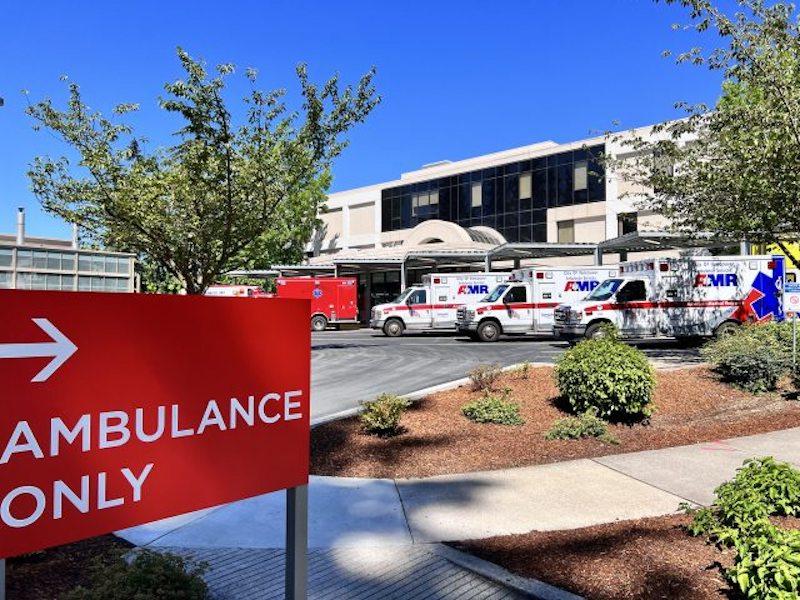
With rising cases of respiratory illness straining their resources, officials at PeaceHealth Southwest Medical Center in Vancouver are telling people not to come to the emergency room if at all possible.
Meanwhile, the Oregon Health Authority put out an alert late on Wednesday, Nov. 23, urging people to take extra precautions to avoid spreading viruses as hospitals overload.
Respiratory syncytial virus, or RSV, and influenza and influenza are joining COVID-19 to overwhelm hospitals across Oregon and Washington.Earlier this month officials in Oregon called on people to wear masks indoors. And Washington health systems issued a similar warning, urging holiday season precautions.
According to Oregon health officials, 25 to 40% of children infected with RSV show symptoms of pneumonia or another lung condition called bronchiolitis, and as much as 2% require hospitalization. The elderly are also at risk.
Both Washington and Oregon had a nearly nonexistent influenza season during 2020-21 when masking, physical distancing and widespread closures kept infections low. But now the flu is making a strong comeback, too.
The Wednesday alert from Oregon officials urged people to stay home if sick and cover coughs and sneezes with the inside of an elbow, or with a tissue that's immediately discarded. They also encouraged disinfecting surfaces, hand-washing, and to consider wearing a mask in crowded indoor spaces.
“Oregon children’s hospitals are pushed to the limit. If you have young children and they get sick, there may not be a hospital bed for them,” said Patrick Allen, Oregon Health Authority (OHA) said. “Our recommendations are a call to action for Oregonians to help slow the spread of respiratory disease and make sure no child’s life is put at risk because every pediatric ICU bed in our state is full with another seriously ill kid.”
In Vancouver, Dr. Jason Hanley, the PeaceHealth hospital's emergency services director, said people with non-emergency health issues should go to their family physician or an urgent-care clinic.
“Please know that we treat everyone who visits our emergency department, but those with non-emergency needs will most likely have a longer wait time before we are able to care for you,” Hanley said.
Hanley encouraged anyone with difficulty breathing or challenges getting enough oxygen to come to the emergency department for an evaluation. He added that for other flu or respiratory virus symptoms, like body aches and coughing, people should care for themselves or visit a physician outside the ER.
Oregon Health & Science University hospital in Portland recenty went on alert with a reduced staffing notice to accommodate a surge linked to RSV, the flu and COVID. And so did Randall Children's Hospital at Legacy Emanuel.
Gary Walker, a spokesperson for Providence St. Vincent Medical Center in Portland, said the hospital has not issued a similar statement to the one from PeaceHealth.
But much like OHSU, the hospital's pediatric intensive care unit, pediatric unit and neonatal intensive care unit are moving to "crisis care standards" because of the high number of babies and young children requiring hospitalization, he said.
“This will help us manage capacity to address the overwhelming demand for hospital services,” Walker said.
Under the rules in Oregon, hospitals can set aside normal staffing rules and invoke “crisis care” standards when resources are severely limited, the number of patients needing care exceeds capacity, and there is no option to transfer patients to other critical care facilities.
“Today, in the Portland metro region, we meet that criteria,” Walker said.
Tom Henderson can be reached at [email protected].